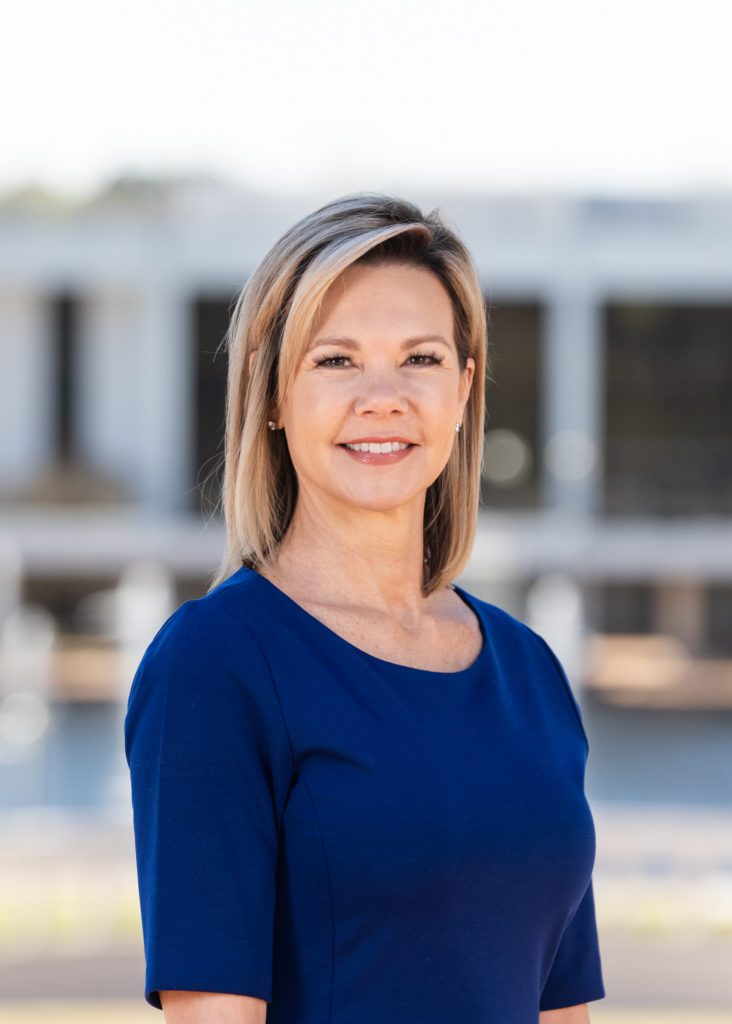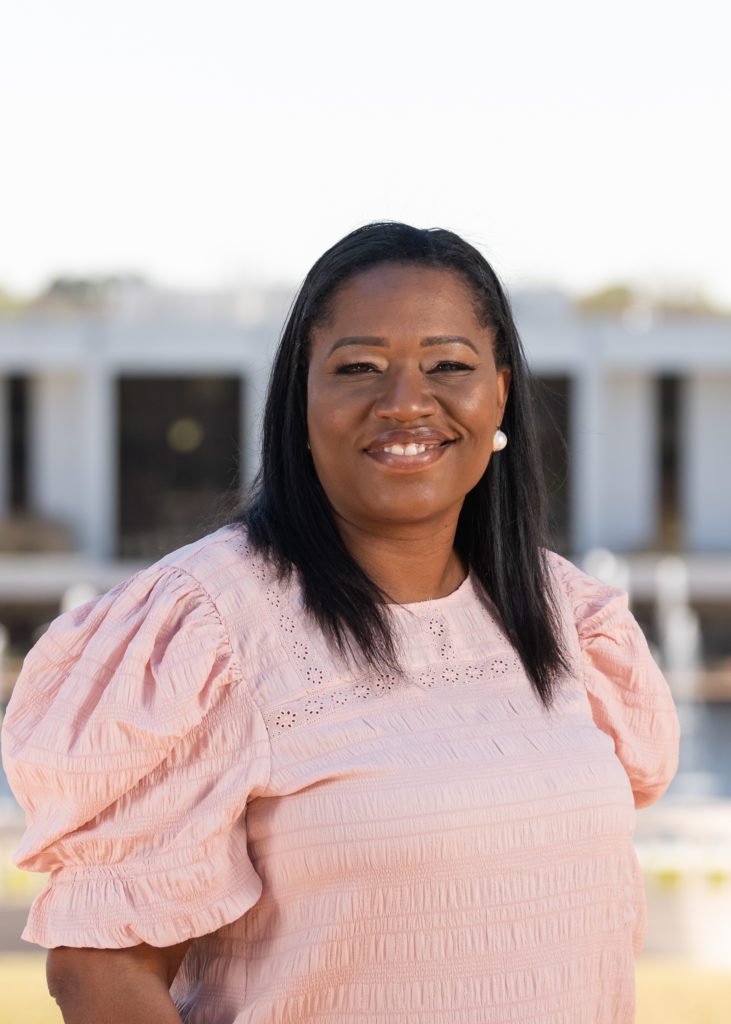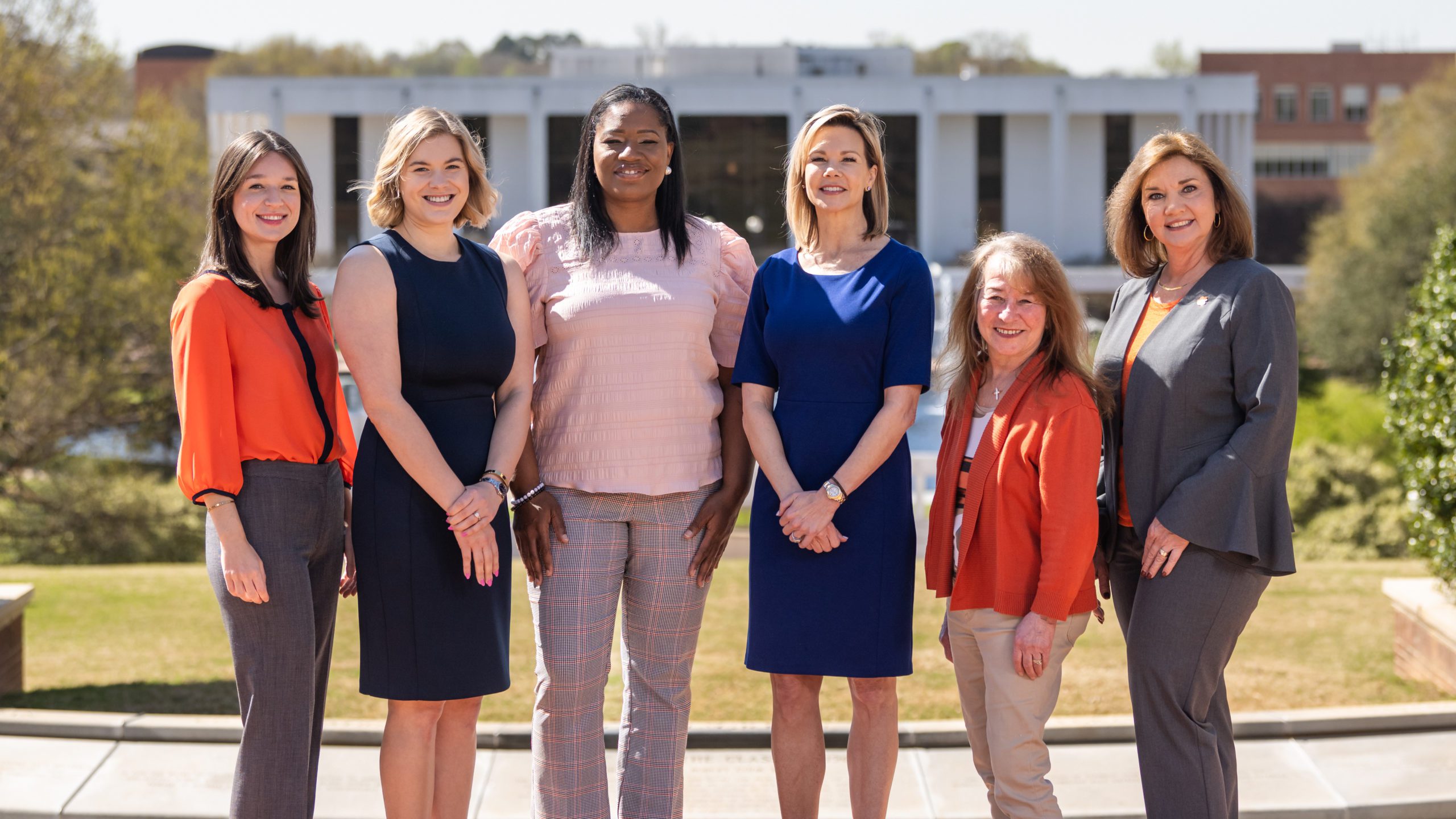Before she even stepped foot into her new role as the director of the Office of Community and Ethical Standards (OCES), Kris Hodge heard the monikers.
They’re the fun-killers. Party-crashers. Only here to punish Clemson students for wrongdoing.
What Hodge believed and ultimately found to be true — after shifting her career following 25 years as a prosecutor in the 13th Circuit Solicitor’s Office — could not have been more fundamental to her core values.
“Students come here to continue their education, not just in the classroom but also in life,” said Hodge, who recently celebrated two years overseeing OCES as associate dean of students. “Our goal in educating them is to help them make better choices. It’s an opportunity to help students become better, more mature citizens as they live in community without parents or guardians — often for the first time.”
Clemson amended its Code of Conduct in January 2020 to more properly prepare for changes that were coming through revised Title IX regulations. The bulk of changes to the Code reflected new adjudication methods for Level I offenses, or cases where students were facing suspension or expulsion.
Under the old adjudication process, administrative hearing boards were made up of students, faculty and staff. Now, the University contracts investigators who present case information to a panel of retired judges.
“The desire of our administration was for OCES to reflect a more professional due process,” explained Hodge, a graduate of the University of South Carolina School of Law. “The University was definitely forward-thinking in matching the Code to it. Hopefully the results are showing Clemson made the right move with its conduct process.”

Hodge was a natural fit to navigate OCES through the changing landscape. In the 10 years prior to joining Clemson’s staff, she headed up the sexual assault and crimes against children unit for the 13th Circuit. She and a team of lawyers worked on average about 300 cases each year.
She learned of the OCES job opening from her former boss, Robert Ariail, retired former solicitor of the 13th Circuit who had been a consultant for the University. Ariail convinced Hodge her skill set would translate well, and after giving it some thought, she applied for the position.
Hodge met with Vice President for Student Affairs and Dean of Students Dr. Chris Miller and Associate Vice President for Student Affairs Dr. George Smith and was quickly at ease about a potential career transition.
“I thought to myself, ‘Wow, what a base of knowledge they both have from the ground up,’” she said. “I thought about it, and the more I worked through it, the more I felt drawn to this position.”
Hodge accepted the job offer and hit the ground running.
ESSENTIAL SUPPORT TEAM, ESSENTIAL SERVICES
OCES staff has been instrumental in acclimating Hodge to the nuances of higher education and, in particular, Clemson University.
Mary Montgomery serves as associate director for residential community standards. She is responsible for working through violations of the Code of Conduct that take place within University Housing — roughly half of the incident case load, per Hodge.

Conduct reports that do not originate in campus housing fall under the responsibility of Laura Clay, longtime administrator within OCES. Clay trains staff on the conduct reporting system and also serves as a point of contact for Student Affairs assessment and the Office of Human Resources.
Cindi Gosnell is the other administrative assistant for OCES. Gosnell has fielded a lot of calls regarding COVID-19 health and safety protocols for the better part of two years, while assisting Hodge with the facilitation of Level I conduct hearings.
Chloe Ogden is the office’s newest full-time employee. A former prosecutor, she serves as a hearing officer and has been assisting with Student Judicial Board training due to her background.
Abby Dill, a former graduate assistant for OCES, rounds out Hodge’s staff. She has been instrumental in a pair of programs aimed at lower-level conduct violations, Tiger STEPS and Tiger Accountability.
“Tiger STEPS has historically been a choices-based program for first offenders,” Hodge said. “But in studying it deeper, we learned in a lot of instances that students didn’t know actual Code of Conduct policies — especially first-year students.”
Dill developed Tiger Accountability as a policy-based alternative that takes 45-60 minutes for students to complete. It is designed to withhold adjudication for relatively minor violations of the Code of Conduct.
“It applies to basic policies where we find students in violation,” Hodge said. “Typically it’s alcohol, some of the health and safety protocols or quiet hours — things you find mostly in residence halls.”
With the addition of Tiger Accountability, OCES shifted Tiger STEPS as a second tier to begin analyzing why a student may choose to violate a policy on multiple occasions. It is an online educational module that is much lengthier, requiring a self-reflection writing assignment for completion.
Two years in, Hodge finally feels like things are “normal” with her staff after navigating a global pandemic and modified campus operations together. She’s encouraged that — despite the return of students in person during the 2021-22 academic year — conduct issues have not exponentially increased.
“We saw a lot more (cases) when there were significant restrictions on students,” she said. “A lot of what we’ve learned through COVID is here to stay. Students like Zoom calls, as opposed to working a personal appearance on campus into their schedule between classes or during the lunch hour. Now that they’ve had more of a traditional college experience, it’s been beneficial for our students.”







